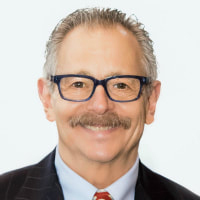Editor’s note: David Leo is a longtime columnist with Rethinking65. To read more of his articles, click here.

The wealth management industry faces a critical talent shortage as advisor retirements outpace new entrants to the profession. McKinsey forecasts a shortage of approximately 100,000 advisors by 2034, (assuming current productivity levels). It would appear that new and young advisors have an opportunity to fill that gap. Yet according to Cerulli Associates, around 72% of rookie advisors fail. Why, and what can be done to increase the chances of them building a successful advisory career?
Key Challenges
Competitive Landscape and Barriers to Entry
The financial advisory industry has significant barriers to entry. Established advisors have built client bases over decades, creating significant competition for newcomers looking to work with wealthy clients. Most clients prefer working with experienced advisors who have weathered different market cycles, putting new entrants at an immediate disadvantage.
Trust and Credibility Gap
New advisors lack the credibility and track record that comes with experience. Potential clients hesitate to trust their financial future to someone perceived as inexperienced, especially for managing significant assets. Young advisors may face age bias, with prospects questioning whether someone who appears young has enough life experience to manage their wealth effectively. This perception challenge extends to networking events where experienced advisors have already built relationships with centers of influence like accountants and attorneys who provide referrals.
Challenging Compensation Structure
Many firms operate on commission-based or fee-based models requiring advisors to build a substantial client base before earning sustainable income. This creates financial pressure during the critical early years. The economics of client acquisition are steep: Industry statistics show it can take an average of eight touches before landing a first meeting with a prospect. New advisors often spend the equivalent of thousands of dollars in time to acquire each new client, creating financially challenging first few years.
Note that while some firms address this issue with salaries for a period, the sales process can be lengthy and demands significant resilience, perseverance, tenacity and doggedness and commitment.
Difficult Client Prospecting
Without an established network or referral base, new advisors must rely heavily on cold calling, networking events, and direct marketing tactics with low conversion rates. The regulatory environment adds complexity, requiring advisors to navigate compliance requirements while building their business.
Training Gaps
Despite formal education, many firms don’t provide comprehensive training on business development. New advisors typically receive excellent technical training in financial products but limited guidance on prospecting, client communication and practice management — skills directly impacting business building.
Technology Competition
Robo-advisors and digital platforms offer low-cost alternatives to traditional advisory services, making it harder for new advisors to demonstrate their value proposition to potential clients.
Evolving Client Expectations
Today’s clients expect advisors to be both financial experts and life coaches. Beyond investment management, they seek guidance on life goals, creating additional pressure on new advisors to develop expertise across multiple domains while still mastering core financial knowledge.
Effective Strategies for Success
First and Foremost
If you’re a new advisor, learn basic financial planning concepts and your firm’s product offerings, complete required training modules, and study for your required licenses/certifications. Participate in client meetings with your firm’s experienced relationship managers or listen to recorded client meetings. Also listen to client calls.
Get started on your Certified Financial Planner (CFP) certification through the CFP Board as soon as possible. Read basic books, as well as books that advisors suggest for their peers. Many sites suggest “The Excellent Investment Advisor” by Nick Murray. Google for other recommendations. Set a goal of reading at least one book a month.
The CFP curriculum includes seven self-paced modules that align with the CFP Board’s Principal Knowledge Topics. They include Introduction to Financial Planning, Risk Management and Insurance Planning, Investments, Tax Planning, Retirement Planning and Employee Benefits, Estate Planning, and Financial Planning Capstone.
Start Using Your Learning Immediately
Every time you learn enough about a topic, perhaps monthly, invite the group of three to six or so friends to a pizza chat to teach them about the topic. Do a 15-minute presentation and hold a Q&A session. This will build your knowledge about topics, help you learn to deliver the material, provide you with feedback, and maybe even help you building business relationships.
While building your knowledge, you’ll learn more about what you know and need to know. Start building your prospect list and networking plans.
Develop a Set of Interview Questions and Conduct Many 20-Minute Interviews
Think about what you want to know and from whom. For example, ask experienced financial advisors:
- How did you build your initial client base, and what would you do differently today?
- What’s the biggest mistake you see new advisors make?
- What business development activities actually generate quality leads?
You can also investors/clients such questions as:
- What initially made you choose your financial advisor?
- What do you value most in the advisor relationship?
- What would make you consider switching advisors?
Develop a set of 10 to 15 questions you believe will help you learn. As you continue to conduct interviews, you will learn other questions to ask.
Niche Specialization
Rather than competing broadly, successful new advisors often focus on serving a specific demographic or profession they understand well. By becoming the go-to expert for a particular group (medical professionals, tech employees, business owners), advisors can develop tailored solutions and marketing messages that resonate more effectively.
But be creative and cautious. For example, many new advisors believe physicians are a great source of clients but it can be challenging to get to speak with them because they are frequently approached by advisors.
Leverage Technology and Digital Presence
Creating valuable content through blogs, podcasts, or social media can establish credibility and attract prospects at scale. Build your LinkedIn network to extend well beyond your profession. LinkedIn has become particularly powerful for advisors who consistently share insights relevant to their target market. This approach transforms client acquisition from one-to-one to one-to-many.
Join an Established Team
Many successful new advisors partner with experienced advisors through succession-planning arrangements. This gives them immediate access to clients while allowing them to learn and grow under the guidance of seasoned mentor. However, true mentoring programs are few and far between and have rarely been formalized. Formalize it!
Some firms offer “advisor development” programs where newer advisors support senior advisors before inheriting portions of their book. This is likely the best way to gain a foothold in the profession especially if it includes serious mentoring.
Focus on Next-Generation Clients
Children of existing wealthy clients are often underserved by their parents’ advisors. Young advisors can position themselves as relatable to this demographic, potentially securing clients who will grow wealthy over time through inheritance or career advancement.
Community Involvement
Genuine participation in community organizations creates organic relationship opportunities. This approach takes longer but builds deeper connections than transactional networking. Volunteering for financial literacy initiatives can showcase expertise while providing a valuable service.
Educational Workshops
Hosting educational sessions on specific financial topics demonstrates knowledge and creates a non-threatening environment for prospects. Virtual workshops have made this approach more scalable and cost-effective than traditional seminars.
Strategic Professional Partnerships
Developing relationships with complementary professionals like estate attorneys or tax accountants can create mutual referral opportunities. The key is finding professionals also building their practices who serve similar client profiles.
Emphasize Planning Over Products
Focusing on comprehensive financial planning rather than investment products creates differentiation from robo-advisors and product-centric advisors. This approach aligns with industry trends toward holistic advice and can justify planning fees separate from asset management.
The most successful new advisors typically combine several of these strategies while maintaining persistence through inevitable rejection and slow initial growth. Building a sustainable practice typically requires a three- to five-year commitment before reaching significant profitability, making resilience perhaps the most important trait for new advisors.
Conclusion
While new and young advisors face formidable obstacles — from established competition and trust barriers to evolving client expectations and technological disruption —the industry’s continued growth and increasing demand for holistic financial guidance create substantial opportunities for those willing to differentiate themselves.
Success requires more than technical competency; it demands strategic thinking, authentic relationship building, and unwavering persistence through the inevitable challenges of the early years. The advisors who thrive will be those who embrace specialization over generalization, leverage technology to amplify their reach rather than replace human connection, and focus on delivering genuine value through comprehensive planning.
Most importantly, they must recognize that building a sustainable practice is a marathon, not a sprint. It requires a long-term perspective, continuous learning, and the resilience. For those prepared to make this commitment, the financial advisory profession offers not just a career, but the opportunity to profoundly impact the financial well-being of individuals and families while building a legacy of trust and service.
David Leo is founder of Street Smart Research Group LLC and senior coach and co-director of content at AlphaScale, a growth-focused coaching and consulting firm for financial advisors and asset managers. During a 30-year career at IBM, he worked as a business processing reengineering consultant and as engagement manager for the financial-services industry. He also spent seven years at UBS/PaineWebber, directly assisting financial advisors with productivity growth. Contact him at David@CoachDavidLeo.com or visit www.CoachDavidLeo.com.







